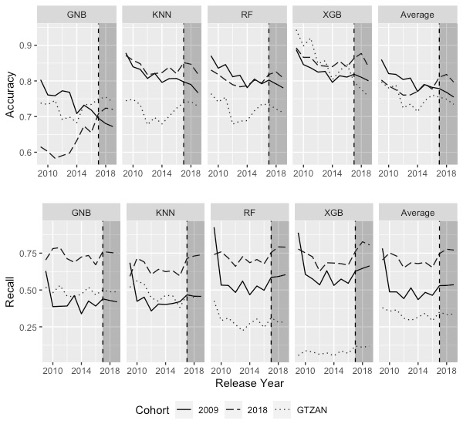Inaccurate Prediction or Genre Evolution? Rethinking Genre Classification
Ke Nie, Department of Sociology, University of California, San Diego
- Forthcoming in Proceedings of the 23rd International Society for Music Information Retrieval Conference.
The existing MIR research on genre classification primarily focuses on how to classify a song into the “correct” genre while downplaying the fact that genres mutate over time and in response to social change in terms of their musical properties. Songs claiming the same genre can sound very different if they are released years apart, and genres may revive musical traditions from the past. In this paper, I show that the performance of genre classifiers fluctuates as genres evolve. Unsatisfactory performance of the classifiers may not indicate algorithmic flaws but rather the change of genre characteristics. I demonstrate this by studying the case of Chinese Hip-Hop music. Specifically, I collected and analyzed 69,427 songs from four genres (Hip-Hop, Pop, Rock, and Folk) released on a Chinese music platform between 2009 and 2019. Using classifiers trained from the songs in different year cohorts to predict the genre of all the songs, I show how genre classifiers can be used to detect the stylistic shift in Hip-Hop that happened during this period. The paper thus offers a novel, sociological perspective on contending with the much-challenged idea of improving genre classification accuracy for its own sake. However, instead of questioning the effort, I argue that MIR research on genre classification can be helpful for studying genre as a social construct and cultural phenomenon if the pursuit of prediction performance and the cultural meaning of inaccurate prediction are carefully balanced.
